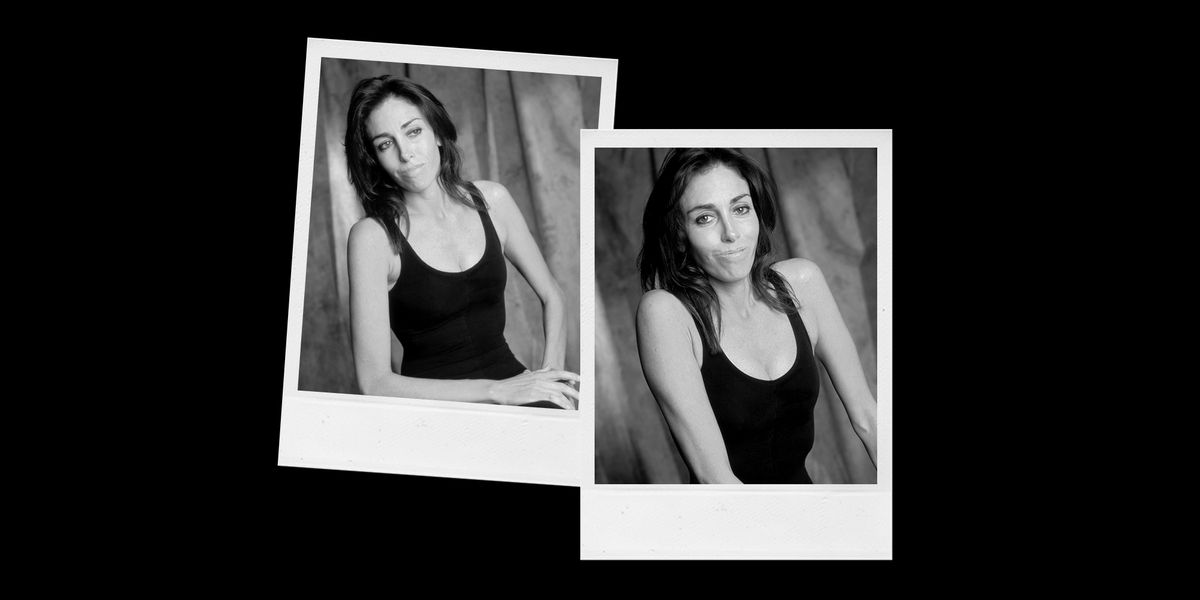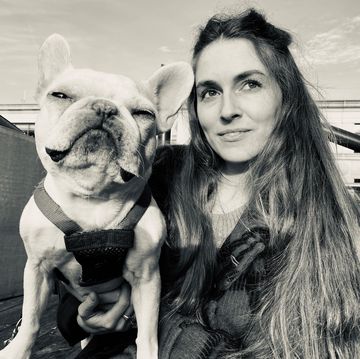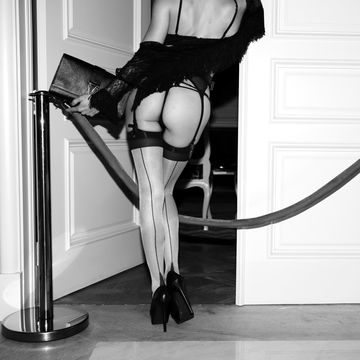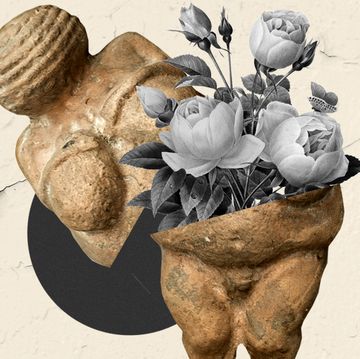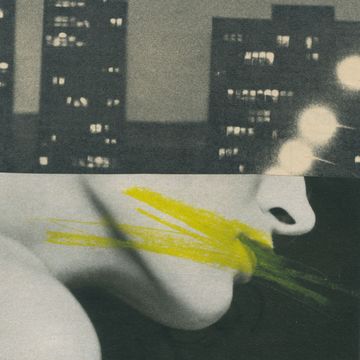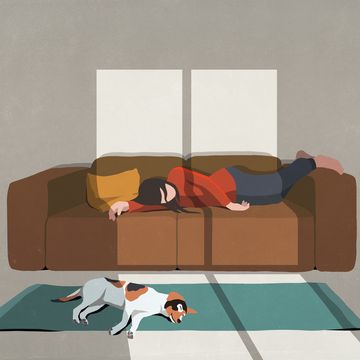When the story of “Hollywood Madam” Heidi Fleiss’s arrest broke in June 1993, it simply didn’t compute for writer Molly Lambert, who was growing up in Los Angeles at the time. Why was this woman being hassled for selling something people wanted to buy?
It’s a question that runs through Lambert’s new podcast, “Heidi World.” The 10-episode series, the first episode of which is out today, traces Fleiss’s rise to infamy: growing up the daughter of a progressive pediatrician-to-the-stars in crunchy Los Feliz, making a name for herself on the party-girl circuit, and, finally, becoming a powerful madam with a stable of hundreds of high-class escorts and an A-list black book (reportedly actually a red Gucci planner) of Hollywood’s rich and powerful—before it all came crashing down.
Lambert spoke with ELLE.com about casting the pod with dozens of L.A. personalities, actors, and collaborators to bring the story to life (with the captivating actress Annie Hamilton voicing Fleiss); what media narratives about sex work miss; and why America still can’t get over our hang-ups.
Take me back to the beginning. What first drew you to Heidi Fleiss’s story?
I am from Los Angeles and I was a kid when the Heidi Fleiss scandal broke. It was a huge story, especially here in L.A., and just completely fascinating to me. I think it was just the first time that I was like, “Oh, well, why is it illegal to sell sex?” Especially in Hollywood, where we all know that everybody uses sex to sell stuff.
I was just kind of surprised nobody had really done a really deep dive into yet. Then when I started getting into the research, I was like, “This is everything I'm interested in. It's a story about hypocrisy and money and sex and everything interesting.”
What nuance did you want to bring to telling this story that was missing from the public conversation when news of Fleiss’ arrest first broke?
I really wanted to make a podcast talking about the story in a pro-sex work way. I also just realized when the story happened, the media was sort of incapable of saying, “Well, what if this weren’t criminalized? Why is this criminalized?” They could never make the turn into asking that question. Or, instead of saying, “Why does this happen?” or, “How can we stop this?” Say, well, “What if we actually protected the people that are selling sex? What if we acknowledge that sex is a thing that people want to buy and sell, and it's a consensually sold thing? How could we actually protect sex workers and make it a safe thing for them to do?” instead of this American thing where we pretend, That doesn't happen here. People don’t have sex outside of marriage and they certainly don’t pay for it. Whereas yeah, we all know that does happen.
I also think just the media in the ‘90s, even in this allegedly progressive moment when everything was, “We’re going to be less sexist! We’re going to be less racist now!” than the ‘80s, it was still just very puritanical in this way, punishing Heidi for selling sex, but not punishing any of the men who bought sex.
I think now we’re in this moment where people have to sell themselves more than ever. Everybody has to have five jobs and be a sort of brand in a way. It all just seemed like a really good time to revisit the Heidi story from that kind of angle.
Right from the first episode, you foreground that the podcast is structured around calling to decriminalize sex work. Why was that an important place for you to start?
Because I was just shocked at how little had changed since this moment when the Heidi Fleiss scandal really drew attention to the fact that sex work was criminalized. There were people at the time saying, “Hey, why is it criminalized? Why is this person being punished?” I think now we’re in this moment—we’re in essentially a recession. I think more people have stuff like OnlyFans, side hustles that involve monetizing skills or monetizing selling aspects of yourself. But it is also being criminalized more than ever. The way in which apps and platforms de-platform sex workers and shadow-ban people for posting, not even obscene, just lightly sexual content. But people like Kylie Jenner can post whatever they want. There’s this incredible double standard still of, yeah, hot women are used to sell everything, especially on social media. But if hot women say, “Hey, I’m using this to sell my pictures or my videos” or anything like that, it becomes That’s not OK. They don’t want women to make money off of their own sexuality. But if we keep sex work criminalized, that allows for people like Mark Zuckerberg to be in control of who gets to sell what.
I’m curious for your read on how, if at all, Americans’ attitudes toward sex, sex work, and women who profit off male desire have changed since Heidi’s arrest?
I think it’s more that it’s not changed as much as you would expect. Especially because that felt like such an inflection point of people being like, “Hey, what if we didn’t criminalize this?” Also, just because the way in which the cops expected that everybody would side with them against Heidi. It was a couple years after the L.A. uprisings; I think people in L.A. were able to see that this was just a big publicity stunt by the cops, that it didn’t fix any of the real problems—this wasn’t even a problem that anybody wanted fixed. It wasn’t a problem at all. It was a consensual exchange. It just feels like so little has changed, but also, more than ever, we live in that world.
Heidi’s trial and public reemergence were also set against the rise of media forces we now take for granted: 24-hour cable, courtroom TV, reality TV. What was it about Heidi’s story that so captured the public’s imagination? Why did she make a perfect villain, especially for mainstream women?
What I loved about her was that she’s not who you would necessarily expect to be this incredible madam. People think of a madam as being sort of an older woman who is experienced in this. She was this Gen X, young, cool madam who understood implicitly how to market sex to these super-rich guys in Hollywood who wanted to buy sex. How to brand her escorts as being higher-end, more exclusive, better than everybody else, and how that worked. Because these were super-rich guys in Hollywood who wanted to spend all this money on sex. So I just thought that was so brilliant of her to brand it that way.
I think she just really understood how to sell stuff from a really young age. She’s this full hustler. I think all the great American stories are about hustlers and people who got one over on this system that's really rigid, one that says, you can climb as high as you want, advance as high as you want, but we all know that there are things in place to stop just anyone from doing that.
She was able just to make a name for herself just by talking her way into all of these situations, these guys in Hollywood completely vibed with her, because they were also all incredible hustlers, incredible talkers. I just found all of that interesting, and I guess as a podcaster, that’s a little what I’m doing too, being like, “Hey, please listen to me.”
That’s also why this is such an L.A. story, right? Los Angeles is, in some ways, our most American city.
Yeah, 100 percent, L.A. or Vegas. My dad says it should be the capital rather than D.C. And just looking at the way that the vice industries are so intertwined with the mainstream industries. Not just entertainment obviously, but everything has this kind of secret underground that we don’t necessarily want to acknowledge, where any time it pops up and people have to be like, “Oh, wait!” There’s like this whole other world under the stuff we hear about.
It also reminded me, after watching Ryan Murphy’s Impeachment, that one of the upshots of the Bill Clinton-Monica Lewinsky scandal was that Republicans thought they had him dead to rights, but the public ultimately kind of shrugged and regarded the sex scandal piece of it as a private matter.
Right, and Monica was the only one who really suffered any of the consequences of that scandal; she was slut-shamed by everybody. Bill Clinton got to come out looking like a cool guy, Hillary looked like a shrew. It’s the misogyny that seeps into everything, and I think Heidi was aware of all of this. Again, I think it just backfired on the cops because they thought, Oh, we’re going to look like heroes for busting this person. Then, similarly to the OJ trial, it became a referendum on power and class and how things work in L.A. People sided against the cops, because nobody likes the LAPD, because they’re psychopaths.
I think Heidi became this folk hero for thumbing her nose at the LAPD, for refusing to play the game the way that it had been played. I think it just really speaks to our current moment in terms of where we’re at with fame and sex and social media—this idea of, as long as you’re watchable, that’s all that matters.
They were saying Heidi “was being exploited” when she was doing sex work, even though she wasn’t being exploited. She wasn’t really exploiting her girls. That went against all these narratives of, “Oh, well if someone’s doing sex work, they must have been coerced into it. Something bad must happen.” It was like, “No, it’s just a job and work is exploitative.” There’s this patriarchal condescension of, “Oh, well, they don’t know any better. They don’t know that it’s degrading for them to sell their bodies.” Which again, the people who are saying that are the people who are buying.
I was just thinking about this yesterday, you used to have to pay money to see pictures of hot girls. Now you can just see it for free. That’s what Instagram is selling—people posting photos of themselves. Or selling “take a look into my life,” whether it’s sexual or not. But then being in this denial that they're selling anything.
Then turning around and shadow-banning or censoring the people that have made their platform a destination in the first place.
Exactly! That’s the thing with social media and a lot of media: Sex workers are the first ones in, then the first ones to get punished when that thing becomes successful. Pornography is always the first thing to launch a new form of media.
What they tried to do with OnlyFans, where they were like, “Oh, we're going to pivot away from sexualized adult content.” I thought that was interesting, because people sided with the sex workers there. People sided with people who take nudes and lewds to pay their rent, because I think also more people than ever can imagine having to do something like that in order to make rent.
Shifting gears slightly, you cast the podcast with an ensemble of L.A. and internet personalities playing the real-life people in Heidi’s story. Why was it important to you to hear from these people in the form of their own words?
Just getting into the research, I realized there were so much quoting of people. People gave so many interviews. Heidi especially did a lot of profiles at the height of her notoriety, because I think she also was trying to control or take charge of her narrative once it started spinning out of her control. I thought it would be fun to cast a lot of people and see these characters. I was thinking of things like Inherent Vice, because it’s just also a story about these sort of unexpected ways in which all these powerful people know each other, kind of above the public line and below in this sort of underworld.
Annie Hamilton, who voices Heidi, is great, she has this amazing, sort of husky voice.
I knew her through my friend, Naomi Fry. She posts these great Instagram Q&As, where she walks around New York and answers people’s questions. I just thought she had this great quality that Heidi has, of just, you can’t look away. This person knows how to keep you interested and get you on the line with their charisma.
Given the timing of the recent Ghislaine Maxwell trial, I feel like there are people who might try to draw bad-faith parallels between Heidi’s story and Maxwell’s story.
It’s just so different. It’s actually the woman who snitched on Heidi. One former Heidi Girl is now a right-wing political figure, who like a lot of right-wing political figures, is behind this movement to try to classify all sex work as trafficking. Right-wingers, but also liberals, lump everything in with trafficking. Trafficking is a crime. Trafficking is exploitative. That’s not what this was at all.
This was all women who wanted to do sex work. A lot of them were failed actresses who needed money. Or aspiring model actress types who... None of it was coerced. Nobody was getting forced to do anything. I think that idea is just still really hard for people to swallow, because there’s this baked in idea that, if somebody does sex work, it’s because they’re down and out. I think if you talk to any sex workers, you see that that's not what it is.
I wrote a piece a long time ago about the porn awards, the AVN Awards, that was the first time I sort of saw the way sex workers were all in the gig economy, that nobody could just have one job, everybody has to have five jobs now and sell off whatever assets they have in order to make rent. I think it’s a time of extremes, and the mainstream media still portrays this narrative that sex work as this very degrading, exploitative thing, but somehow working at an Amazon warehouse where you have to piss in a jar is okay. Of course, there are exploitative forms of work, but sex work isn’t automatically exploitative. Again, it’s just so nuanced, it’s hard for people to talk about, I think. It’s so easy to railroad people.
I have to ask about the name of the podcast, Heidi World. What’s the legacy of “Heidi’s girls,” her arrest, and her treatment by the media? In what ways are we living in Heidi’s World?
I really think she foretold the social media world, where it doesn’t matter what you do as long as people are looking at you. She didn’t set out to become famous; her being famous ruined her life and her business. I also think there’s this thing that happens in culture where, if a woman wants attention, people are like, “Well, let’s give her attention.” “Let’s attention her to death.” Which I also think is really what happened with Monica Lewinsky: “Oh, you wanted people to look at you? Well, now we’re all looking at you and we’re never going to stop.”
Heidi was just so smart that once she became famous, she found ways to monetize it, using her own notoriety to be like, “Well, all these people in the media are making money off of me, how can I use it to make money off of this story?” Now, for better and worse, that’s the world we live in. As long as you can keep people’s attention, that’s all that really matters.
New episodes of the podcast will be released all podcast platforms each Monday. Lambert also has a Patreon for the show, where backers will get access to bonus episodes, merchandise, and more.
This interview has been lightly edited for clarity.
